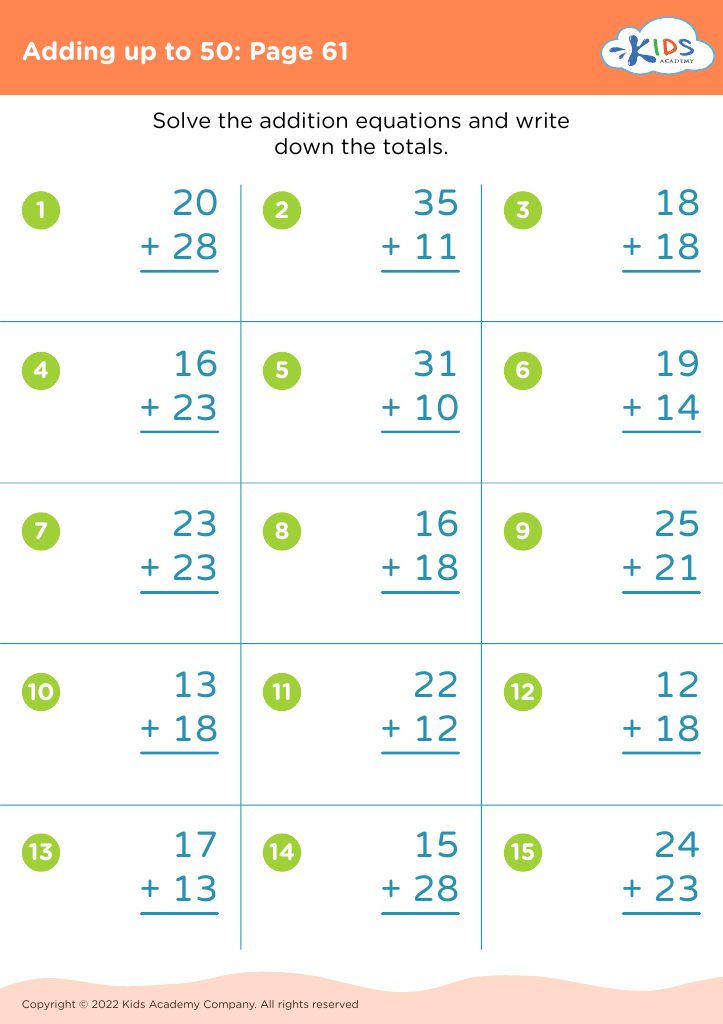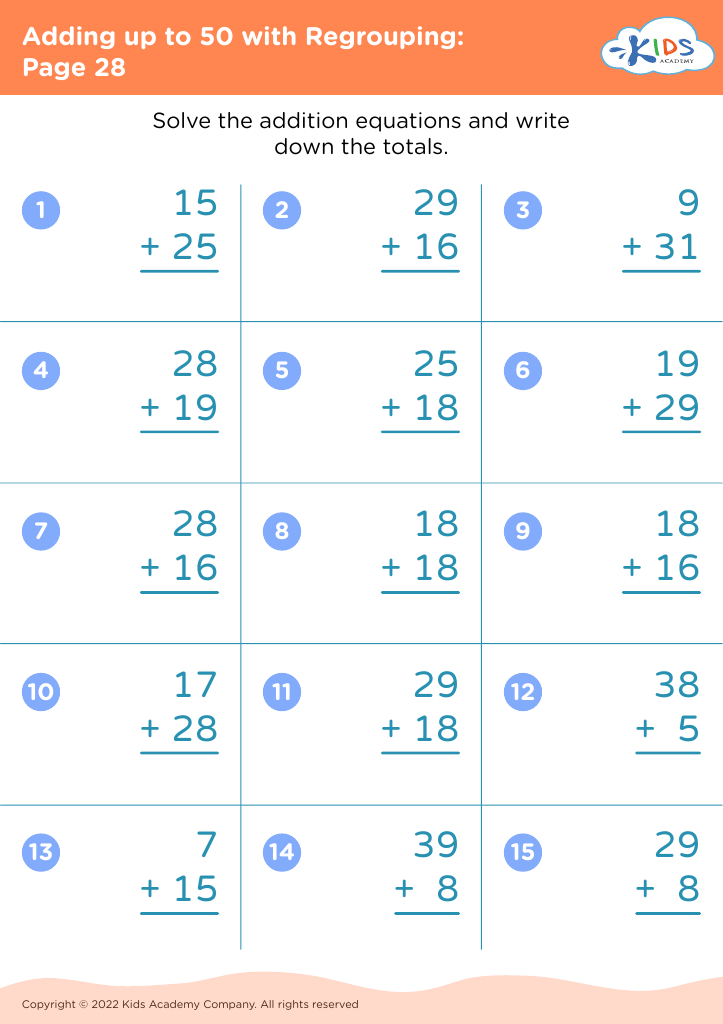Addition skills Adding up to 50 Worksheets for Ages 6-7
7 filtered results
-
From - To
Enhance your child's math proficiency with our "Addition Skills: Adding Up to 50 Worksheets" designed for ages 6-7. These engaging and interactive worksheets help young learners master the fundamentals of addition, making math both fun and educational. Featuring colorful visuals and age-appropriate exercises, these worksheets encourage children to explore various addition strategies while building confidence in their abilities. Perfect for classroom use or at home practice, they offer incremental challenges to suit different learning paces. Support your child's journey toward mathematical understanding and enjoyment with our carefully crafted resources today! Unlock their potential with essential addition skills that last a lifetime.
Addition skills, particularly those involving sums up to 50, are foundational for children aged 6-7 as they are essential for developing mathematical fluency. Mastering addition enhances students’ ability to handle more complex math concepts later on, such as subtraction, multiplication, and division. This early proficiency lays the groundwork for problem-solving skills that are crucial in everyday life, from grocery shopping to budgeting.
Additionally, fostering a strong understanding of addition at this stage boosts confidence in students. When children can easily add numbers, they experience a sense of achievement that encourages positive attitudes towards learning and math in general. This skill also improves their ability to engage in collaborative mathematical activities with peers.
Moreover, addition skills up to 50 are often integrated into various subjects, including science and economics, making them critical for interdisciplinary learning. Parents and teachers can support this skill development by incorporating fun activities like games and real-life scenarios that promote practice and engagement.
In conclusion, emphasizing addition skills up to 50 fosters not just numerical understanding but also cognitive and emotional development, enabling young learners to thrive academically and socially. Investing time in these foundational skills reaps benefits well beyond the classroom.



















